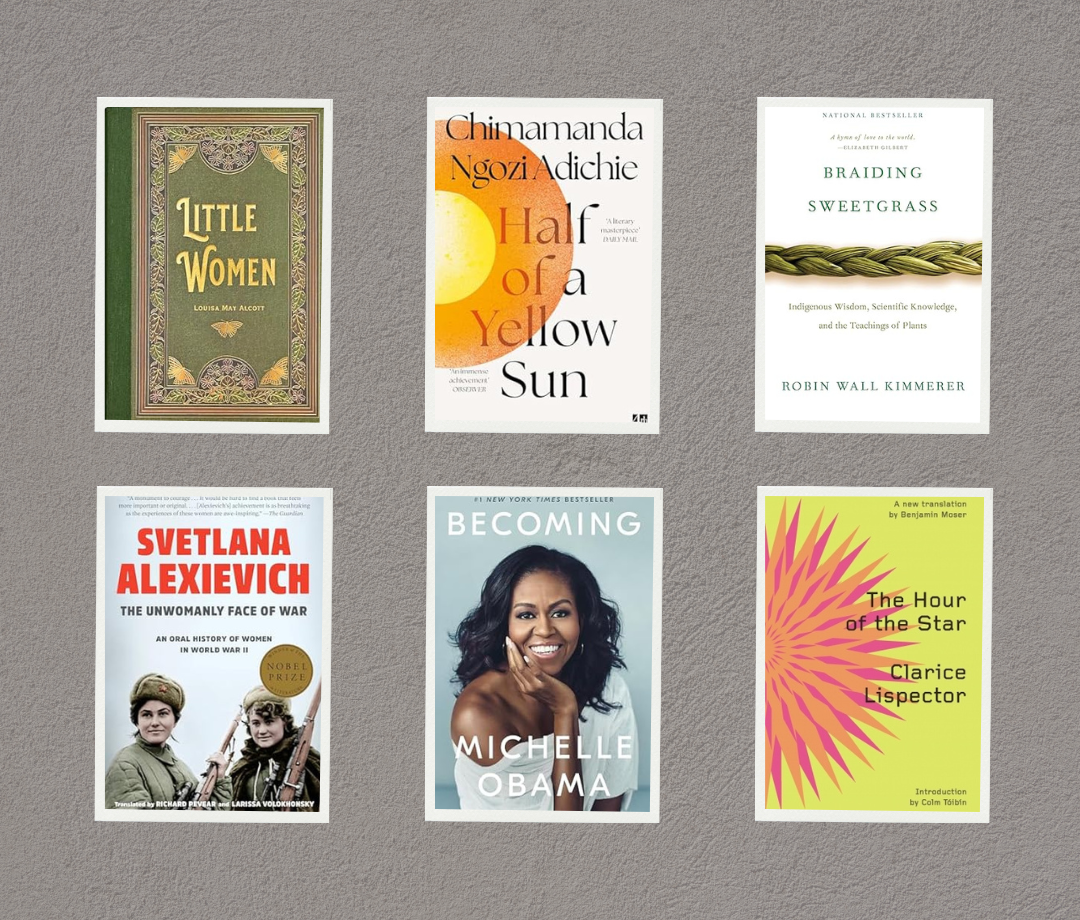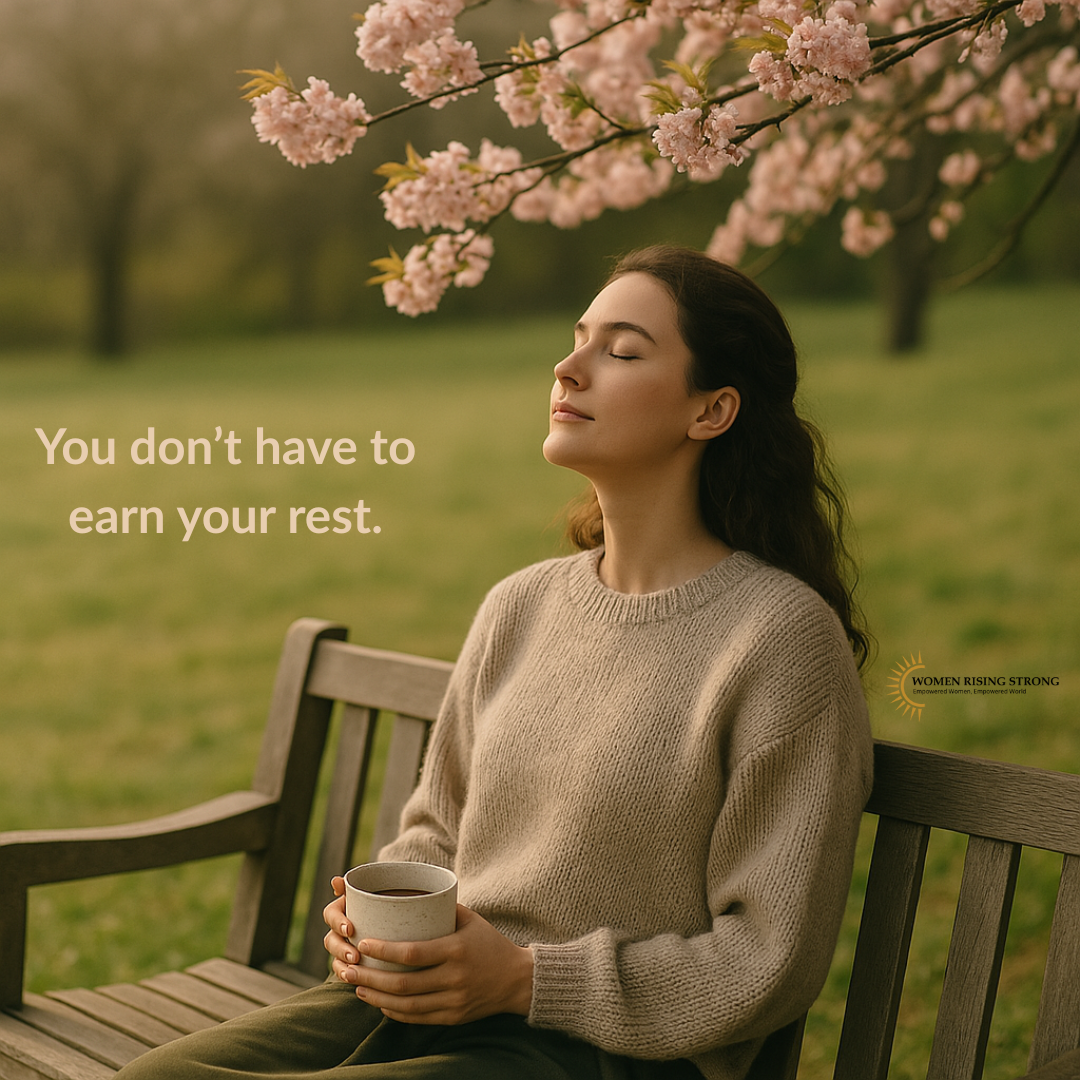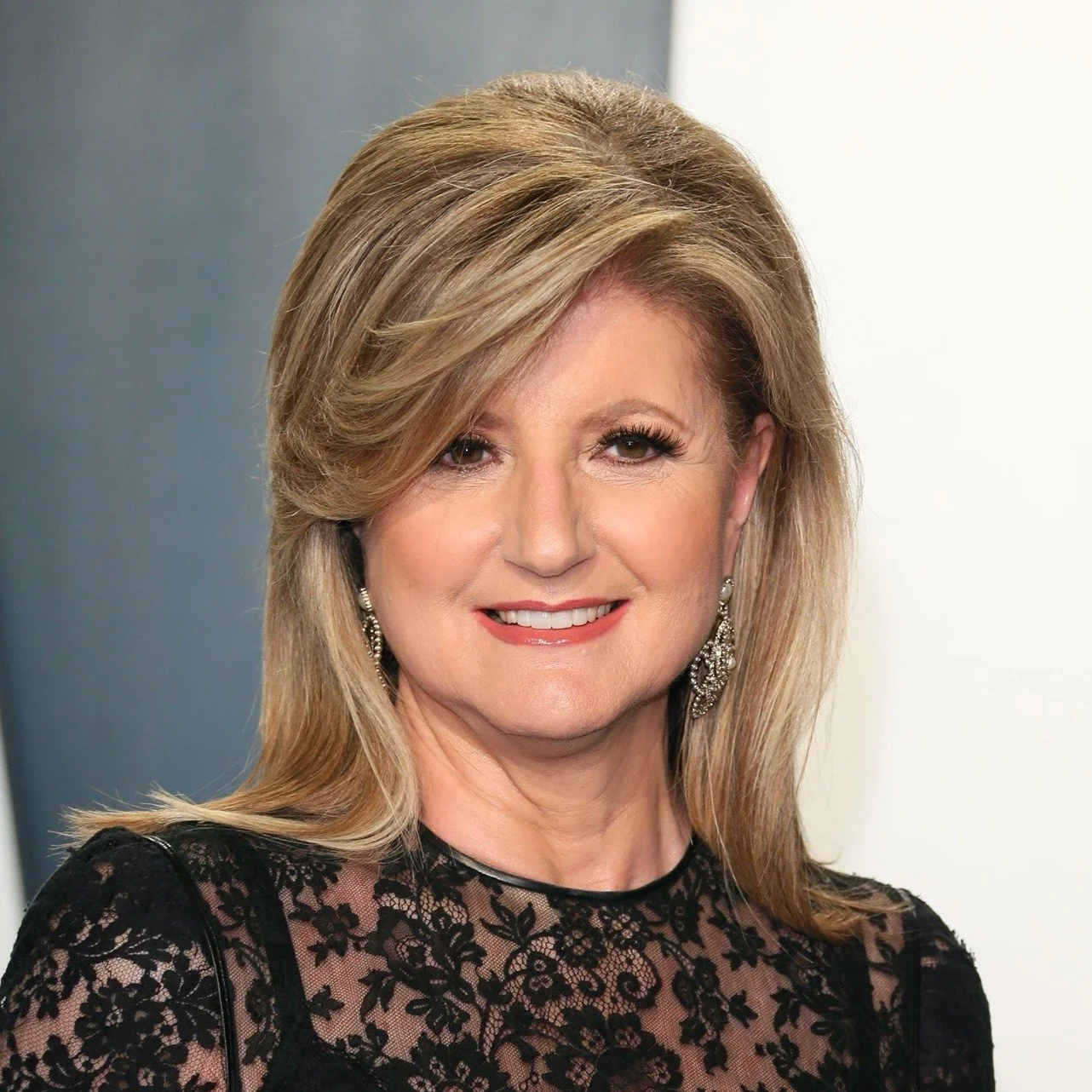The Stories We Tell: How Women's Narratives Shape Our World
Have you ever read a book that made you stop mid-sentence and think, This could change everything?
For me, that moment came in my forties, in Bury St. Edmunds, England, during a rainstorm. I ducked into a bookstore—more for shelter than anything else—and found Wild by Cheryl Strayed. I didn’t know then how much I needed her voice, her honesty, her messiness. But page by page, I felt something shift.
Her words didn’t offer neat answers. Instead, they gave me permission to ask better questions.
“How wild it was, to let it be.”
“I’m a free spirit who never had the balls to be free.”
“Fear, to a great extent, is born of a story we tell ourselves…”
That weekend, I devoured the book. By Monday, I wasn’t planning a thousand-mile hike—but I was finally ready to stop living the life I thought I should want and start walking, step by step, toward the life I actually craved.
As we celebrate World Book Day this month, I’m thinking about the women whose voices have made me braver, more honest, and more alive. Because the stories we read—and tell—can quietly but completely reorient our lives. Books don’t just entertain or inform. They hold up mirrors. They open windows. They hand us maps we didn’t know we were missing.
And they remind us that sometimes, the bravest thing we can do is tell the truth about our own journey.
For too long, stories by women have been sidelined or boxed into labels like “chick lit” or “domestic fiction.” But things are changing. Women are telling their truths in their own words—and we’re all better for it.
From Silence to Signal: How Women Are Reclaiming Their Stories
For a long time, women’s stories lived in the margins. Scribbled in diaries. Spoken in hushed tones. Shared in letters that were never meant to be published. Even when their words made it into print, they often appeared under male pseudonyms—just to be taken seriously.
Jane Austen’s first novel? Signed “By a Lady.”
The Brontë sisters? Published as Currer, Ellis, and Acton Bell.
Not because they lacked talent—but because the world lacked trust in women's voices.
But things are shifting.
Today, women are telling their stories in their own names, in their own ways—and on their own terms. Platforms like Substack, Instagram, and even TikTok have changed the game. You no longer need a publishing deal to be heard. You need only the courage to show up and speak your truth.
And here's what’s powerful: the more personal the story, the more universal it becomes.
We’re not just sharing to be seen. We’re making space—for connection, for healing, for change.
Neuroscience even backs this up. Studies show that telling our stories—especially the painful, complicated ones—activates parts of the brain that help us process emotion and build empathy. It’s not just catharsis. It’s transformation.
When a woman tells the truth about her life, it doesn’t just heal her.
It helps someone else realize they’re not alone.
That’s the ripple effect of storytelling.
And it's one of the most powerful tools we have.
Chimamanda & Isabel: Women Who Shape the Narrative
Some storytellers don’t just write books. They open doors—into lives, into histories, into truths we didn’t know how to name until we read their words.
Here are two women whose stories—and storytelling—have changed the way we see the world.
That one sentence—spoken in her landmark 2009 TED Talk The Danger of a Single Story—reverberated around the world. Chimamanda challenged us to look beyond surface-level narratives and notice who gets to tell the story… and who gets left out.
As a young girl growing up in Nigeria, she wrote stories about blue-eyed children playing in snow—because that’s what she thought stories were supposed to look like. She hadn’t yet seen her own world reflected in literature.
She’s since changed that for countless readers.
Through novels like Half of a Yellow Sun and Americanah, Chimamanda offers a powerful antidote to the “single story.” Her characters are layered, flawed, unforgettable. They live in the tension between tradition and change, displacement and home, vulnerability and defiance.
In 1981, Isabel Allende sat down to write a letter to her dying grandfather. What poured out wasn’t just grief—it was a story. That letter became The House of the Spirits, a sweeping family saga that blended memory, myth, and political turmoil.
At the time, Isabel was living in exile from Chile following a military coup. Her work—anchored in magical realism—offered something factual reporting couldn’t: emotional truth.
Now in her 80s, Isabel has written 26 books translated into more than 42 languages. But what might be most moving is her quiet ritual: every January 8th, without fail, she begins a new book. A practice that has carried her through devastating loss, reinvention, and deep transformation.
Her stories are not just about women—they are steeped in the lived, layered experience of womanhood.
These two women—one rooted in Nigeria, the other in Chile—have never met on the page, but their work shares something vital:
A refusal to flatten stories.
A reverence for complexity.
And a belief that storytelling isn’t just about being heard. It’s about being understood.
💫 Hidden Gems Reading Corner: Rupi Kaur – Poetry Without Permission
When publishers said no, Rupi Kaur didn’t wait for a gate to open—she built her own path.
In 2014, the Indian-Canadian poet quietly self-published her first poetry collection, milk and honey. No big marketing machine. Just raw honesty, spare words, and a deep desire to connect. She started sharing her poems and line drawings on Instagram—directly with readers who needed them. And something clicked.
“if you were born with the weakness to fall
you were born with the strength to rise.”
That line alone has become a lifeline for many.
Kaur’s work is unpolished in the best way—stripped down, emotionally immediate, unapologetically hers. Her poems explore trauma, healing, femininity, heartbreak, and survival—not with grand metaphors, but with everyday truth. And readers showed up. milk and honey sold over 3 million copies and stayed on the New York Times bestseller list for more than three years.
But her story is about more than numbers.
Rupi Kaur reminded the world that poetry doesn’t need permission to be powerful. You don’t have to write like the greats. You just have to write like you.
STORIES THAT SHAPED US
Here are a few reflections from readers around the world who shared the stories that helped shape who they are:
Mei, Singapore
“Reading Little Women as a twelve-year-old showed me that ambition wasn’t something to hide. Jo March became my permission slip to pursue writing seriously, even when my family hoped I’d choose something more ‘practical.’”Aisha, Nigeria
“Chimamanda Ngozi Adichie’s Half of a Yellow Sun gave me a deeper understanding of my heritage and history in a way textbooks never could.”Daria, Ukraine
“During the first months of war, Svetlana Alexievich’s The Unwomanly Face of War helped me feel seen. Her voices of Soviet women reminded me that we’ve always been more than statistics—we’ve been storytellers too.”Taylor, Canada
“Braiding Sweetgrass by Robin Wall Kimmerer arrived during my deepest depression. Her blend of Indigenous wisdom and science helped me reconnect with the natural world when I felt most disconnected from myself.”Elena, Italy
“Reading Becoming by Michelle Obama inspired me to pursue my ambitions fearlessly. Her story made me feel like it was okay to grow and evolve, even when the path isn’t clear.”Maria, Brazil
“Clarice Lispector’s The Hour of the Star made me reflect on societal expectations and personal freedom. It was quiet, but it stayed with me.”
✍️ Your Turn
What chapter are you in right now?
And what kind of chapter would you love to step into next?
Try this:
Pick three words that describe where you are.
Then three words for where you're headed.
Write them down.
Or share them with someone who gets it.
Sometimes, naming it is the first step toward living it.
Here are mine right now:
Tired. Unfolding. Searching.
And where I’m headed:
Braver. Sharper. Unapologetic.
What are yours?
🌸 The Radical Art of Rest — Reclaiming Your Right to Pause
Not long ago, I found myself sitting in silence with a warm cup of tea, doing nothing but staring out the window. I hadn’t planned it. I just couldn’t bring myself to open the laptop or check one more message. And in that small pause, something I hadn’t felt in weeks showed up—calm.
I’d been running on fumes—coaching, writing, helping friends sort through confusing documents and conversations. Rest felt indulgent. Like something I hadn’t earned.
Learning to pause is still something I’m working on.
It doesn’t come naturally. The urge to push through is strong. But I’m beginning to notice that the moments I step back—even briefly—often bring more clarity than the hours I spend powering through.
Breakthroughs, I’m starting to see, don’t come from grinding. They come from space. From giving your mind room to breathe.
Now, as spring quietly reawakens the world, I’m reminding myself—and maybe you too—that growth doesn’t have to be loud or fast. Nature takes its time. And so can we.
Rest Isn’t a Reward—It’s How We Reclaim Ourselves
We live in a culture that praises hustle like it's the highest virtue. Being busy is worn like a badge of honor. But the truth is—many of us, especially women, are quietly stretched thin. Managing homes, caregiving, careers, emotional labor… it all adds up.
A 2024 McKinsey report found that women are 1.5 times more likely than men to report burnout. And yet, we hesitate to step back. We’re told rest is something we earn, not something we’re allowed to need.
But what if choosing rest was an act of courage?
What if saying “I need a break” was a way of standing up for your wellbeing—not checking out, but checking in?
We don’t need to do more to matter.
We don’t need to fill every hour to feel worthy.
And maybe… we don’t need to be available to everyone else, all the time.
This isn’t about abandoning our responsibilities. It’s about showing up for ourselves with honesty and intention.
Spring reminds us that renewal follows rest.
We’ve just come through winter—slow, gray, sometimes heavy. But it had a purpose. Now, nature starts again—not in a rush, but quietly, patiently. We can, too.
👉 This month, what would it look like to honor your own rhythm?
👉 Where could you soften the pace, even just a little?
Women Who Rest Powerfully
We don’t always grow up with examples of what healthy rest looks like—especially in a world that often treats slowing down as something to feel guilty about. But some women are shifting that script, not by stepping away from their strength, but by choosing to channel it differently.
These two women are leading the way in redefining rest—not as an escape from life, but as a deeper way of engaging with it.
✨ Arianna Huffington
Arianna Huffington was once the face of relentless hustle—until 2007, when she collapsed from exhaustion, hit her head on her desk, and woke up in a pool of blood. That moment forced her to question everything she believed about success and productivity.
She went on to write The Sleep Revolution and founded Thrive Global, a company that helps people prioritize well-being without sacrificing ambition. She’s still active today, advocating for rest as a non-negotiable, especially in the workplace.
“We sacrifice sleep in the name of productivity,” she explains, “but ironically, our lack of sleep leads to more lost productivity than we realize.”
Her message in 2025 is clear: well-being is the foundation of sustainable success. Companies thrive when people are allowed to rest. And the path to change begins with redefining what it means to succeed.
🎥 Want to hear her story in her own words?
In this powerful interview, Huffington reflects on the moment that changed everything—and how exhaustion became her wake-up call to create a new vision for work, health, and life.
👉 Watch the interview
✨ Tricia Hersey – The Nap Ministry
Theologian, artist, and founder of The Nap Ministry, Tricia Hersey continues to spark a quiet revolution. She calls rest “a portal for healing” and a sacred act of refusal—refusing grind culture, exhaustion, and the lie that our worth is tied to output.
In her 2022 book, Rest Is Resistance: A Manifesto—which I recently read—she writes with clarity and conviction:
“Rest is not a luxury. Rest is a human right.”
The book is more than a call to nap. It’s an invitation to reclaim our bodies, our minds, and our time from systems that have profited off our exhaustion. Hersey challenges us to see rest not as self-care fluff, but as a form of reparations, of spiritual reconnection, and of radical imagination.
A few key takeaways I noted:
Rest isn’t earned—it’s inherited. You don’t have to do more to deserve it.
Busyness is not proof of worth. The grind keeps us distracted from our inner knowing.
Rest restores imagination. In stillness, we remember what truly matters.
As of 2025, Tricia Hersey continues to guide this movement with rest collectives, workshops, and a steady reminder: we are not machines. She recently released her latest book, We Will Rest—The Art of Escape, which continues her powerful call to rest as a form of liberation, especially in a world that doesn’t make it easy.
THE 7-DAY RADICAL REST CHALLENGE
Simple ways to start reclaiming your energy:











